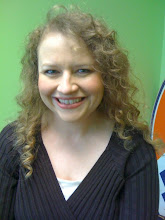I want to kill my first chapter.
I know that's harsh, but I've lost track of how many times I've rewritten it. I'll take off in a direction, certain I've finally nailed it, only to read those words days later and wince at the flat characters and stilted dialogue. I walk away in silent self-condemnation. (Writers tend toward the emotional. At least, this one does.)
I have all the pressure of knowing the first chapter has to be IT. It has to have the hook that grabs the reader by the throat and throws that person onto the couch, never to rise again (at least until they've finished it). Characters must shine. Dialogue has to snap. It must be well-crafted, seamlessly showing (never, ever telling) the Main Event. And it must have voice, that elusive ingredient that no one quite defines well, but you know it when you read it.
My biggest problem is that I feel like so much of the chapter is simply a set up to the Main Event, which happens at the end of the chapter. It pretty much reads that way, too.
So today I made a list of what the reader needs to see in the first chapter. It boiled down to this:
1. Stick Main Character in Main Event
That's pretty much it. Everything else can be woven around that. Of course, this means that my first chapter is now cut by two-thirds. Perhaps this means that my Main Event was not nearly big enough, and I still have to pull off the high-wire act that a first chapter must accomplish. I only hope that a couple days from now I don't pull this iteration out and wince again, but I think I might be getting a little closer to where it needs to be.
How do you handle revising your first chapter? Any tips?
Tuesday, June 8, 2010
Subscribe to:
Post Comments (Atom)




I am SURE there will be nothing I say here you don't already know in spades above me. But I wanted to comment at least, cause you know I can't keep my mouth shut.:)lol
ReplyDeleteFrom one uber novice to one advanced expert---I think it's like flirting. Maybe not our particular style, think more like Real Housewives of Orange County. Tease the reader. Set up characters to where we're dying to know more about each one. There are too many questions left up in the air for the reader to stop after chapter one.
And tease with a million and one plot points that COULD happen--doesn't mean they all will. Make the reader ache to know more about the book. Have them keep thinking in their head about the plot long after they put it down. They have to go back, have to keep reading, have to know more! *sigh*
Thus ends the courtship and begins the marriage between the reader and your wonderfully, engrossing story.:)
Jules-
ReplyDeleteI love that analogy of courtship and marriage! I totally appreciate your comment because you read a ton and KNOW good characters and engrossing stories. I get so bogged down in mechanics at times that I edit the heart (or voice) right off the page. I need to concentrate more on setting up all those what-ifs with a character that you want to stick with. Hmmm. *off to ponder*
oh man, in my impatience I killed my comment. So this is just like re-writing my first chapter. Do it without looking at what you already have!
ReplyDeleteI know your pain. I just revised my first chapter. I'd started like I always seem to by having my protagonist in bed, ruminating. Arggh! So I pulled some action from the 2nd chapter and started there. It was fun.
By the way - I think it is OK to sometimes - sometimes - tell not show. We are story tellers not story showers (you know what I mean!). Look at your favourite classic and you will undoubtedly see that they do tell some of their story. just saying...
Jan- Great points there! Sorry about your loss of your first comment. :( When I write magazine articles a lot of times I end up going back and making the second or third paragraph the first one, realizing only then that the first graf was, in a sense, a warm up.
ReplyDeleteI think it is the same sometimes with first chapters. And you are right, I think it is okay to tell sometimes. I get so many rules in my head that, if I'm not careful, I edit the voice right out of the character. It's a delicate balance, for sure. Thanks for your thoughts!